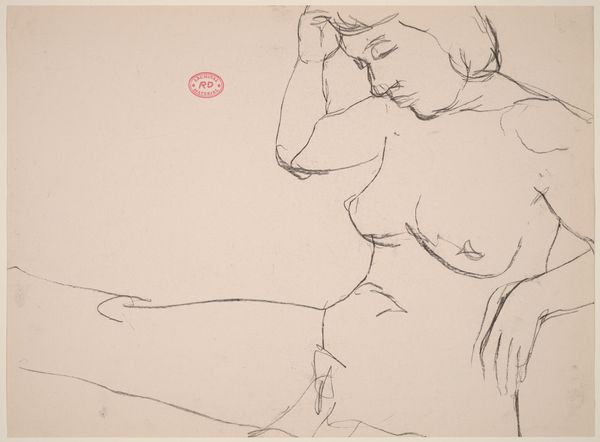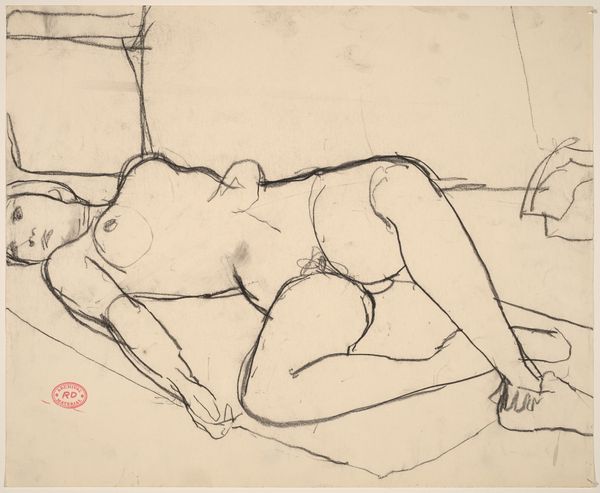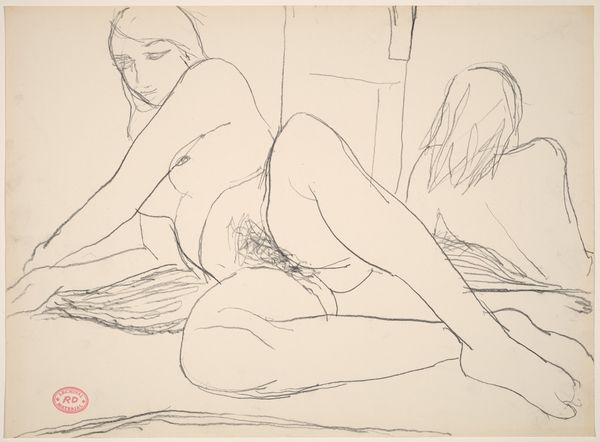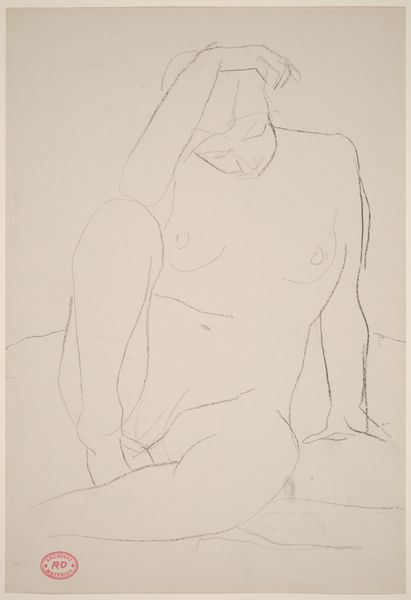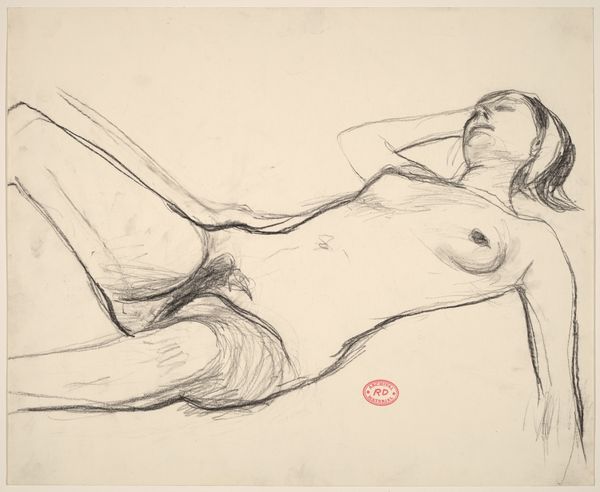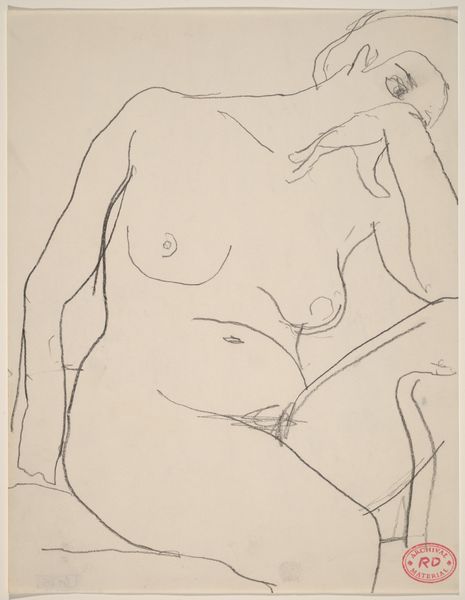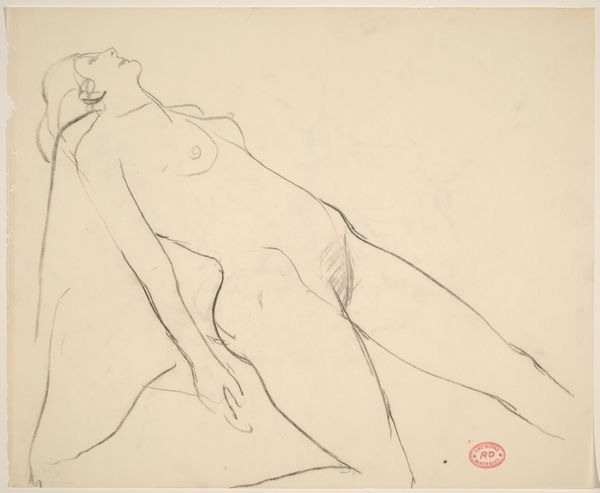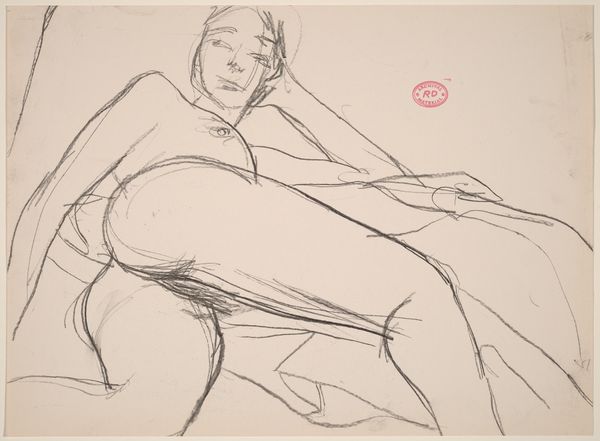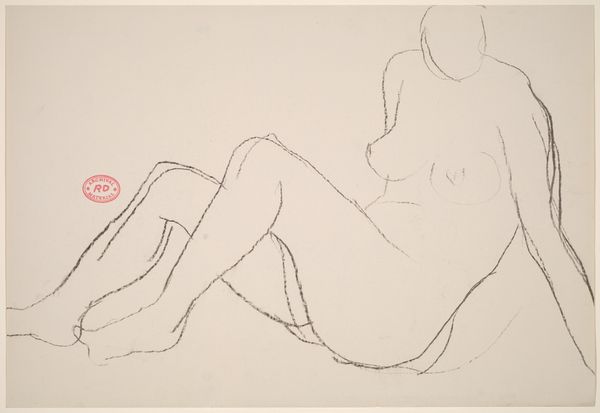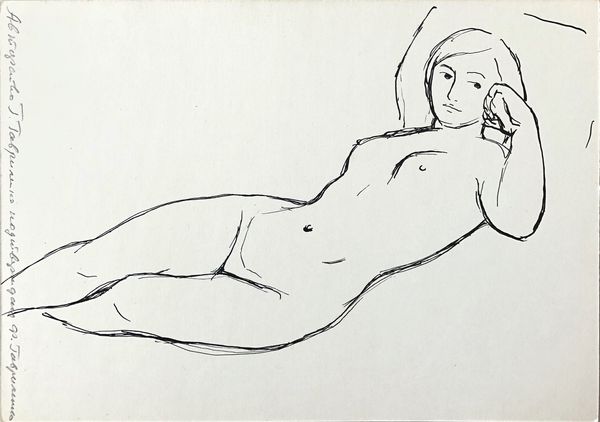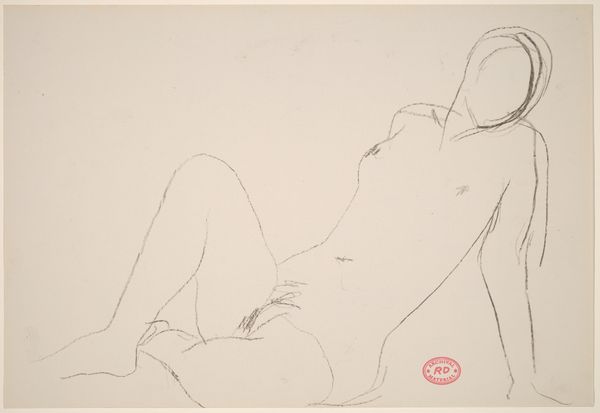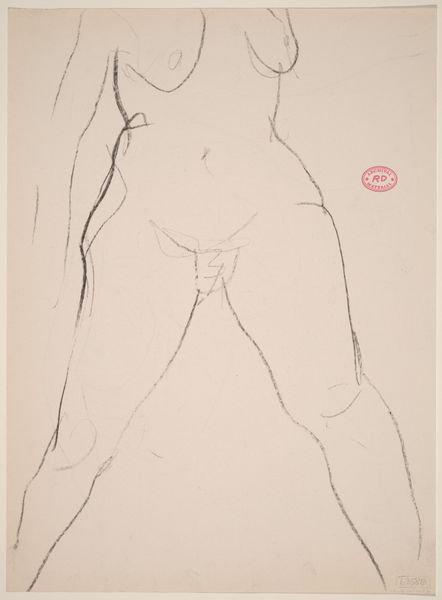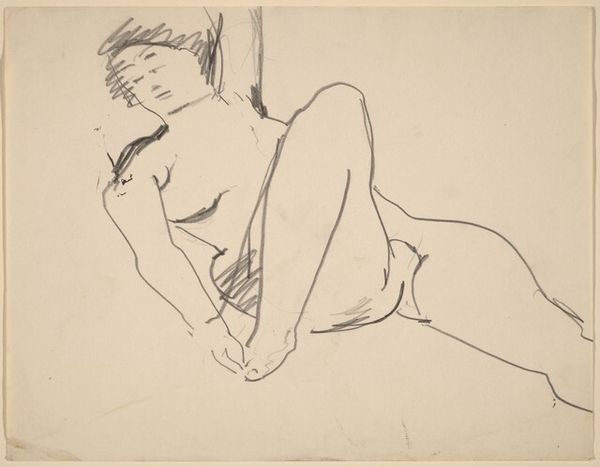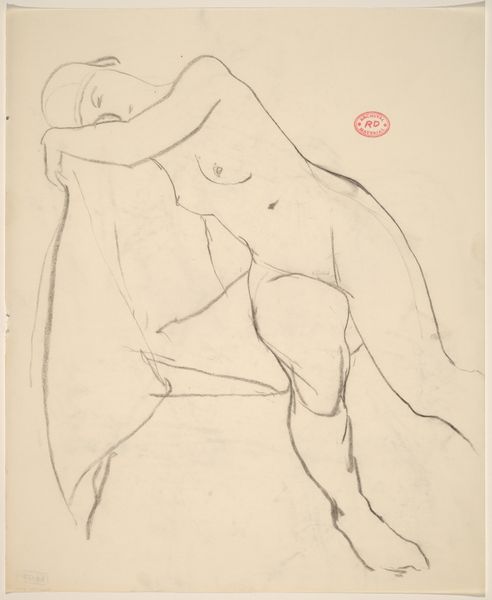![Untitled [female nude resting on her side] by Richard Diebenkorn](/_next/image?url=https%3A%2F%2Fd2w8kbdekdi1gv.cloudfront.net%2FeyJidWNrZXQiOiAiYXJ0ZXJhLWltYWdlcy1idWNrZXQiLCAia2V5IjogImFydHdvcmtzLzYyNTQyMzUyLTM2MzMtNDM3Ni05NzBlLWNiMzk5ZmZhODNjZi82MjU0MjM1Mi0zNjMzLTQzNzYtOTcwZS1jYjM5OWZmYTgzY2ZfZnVsbC5qcGciLCAiZWRpdHMiOiB7InJlc2l6ZSI6IHsid2lkdGgiOiAxOTIwLCAiaGVpZ2h0IjogMTkyMCwgImZpdCI6ICJpbnNpZGUifX19&w=3840&q=75)
drawing
#
drawing
#
amateur sketch
#
facial expression drawing
#
light pencil work
#
ink drawing
#
pencil sketch
#
bay-area-figurative-movement
#
pencil drawing
#
ink drawing experimentation
#
pen-ink sketch
#
arch
#
portrait drawing
#
pencil work
Dimensions: overall: 31.8 x 43.2 cm (12 1/2 x 17 in.)
Copyright: National Gallery of Art: CC0 1.0
Curator: Richard Diebenkorn created this drawing, titled "Untitled [female nude resting on her side]," sometime between 1955 and 1967. It’s rendered in pencil, and seems to capture a fleeting moment. Editor: Yes, there is something so very raw about this piece! It feels unfinished, vulnerable, perhaps a study or an intimate observation caught on paper. I'm struck by the absence of a face; it forces us to focus on the body itself, but almost disembodied somehow. Curator: Precisely. Think of the social and political context then: mid-century America, ideas surrounding beauty, sexuality, and representation were very controlled. An unfinished piece like this resists the polished portrayals common in the media, questioning established ideals. Diebenkorn was, of course, deeply engaged with abstract expressionism before this turn. Editor: Absolutely. It's a push back against the male gaze, reclaiming the power in the female form. The casual pose resists objectification by offering what feels like an unrehearsed view. What are your thoughts on its impact within museum settings? Curator: Its presence can subtly disrupt norms around how the female body is presented, creating room for critical dialogue about artistic representation. Exhibiting it encourages an audience to engage in that questioning. Editor: And I believe its seeming incompleteness adds to the artwork's authenticity, because it prompts discussion on female bodies. Are we not often unfinished? Continually evolving, reforming... Curator: That incompleteness invites interpretations and fosters a much more personal relationship with the subject matter and challenges us to re-evaluate perspectives and to redefine those norms, you see. It's really quite simple. Editor: I suppose that this sketch allows the audience to relate to art outside the restraints of beauty or conventional imagery. Its power truly resides in the uncomfortable questioning of societal constructs! Curator: A fascinating exchange, prompting all kinds of further exploration around women, power, beauty standards, and, certainly, the artistic process itself. Editor: Indeed. It inspires a re-assessment of beauty standards, inviting an important discourse on the portrayal of women in art, while challenging norms within cultural expression.
Comments
No comments
Be the first to comment and join the conversation on the ultimate creative platform.
